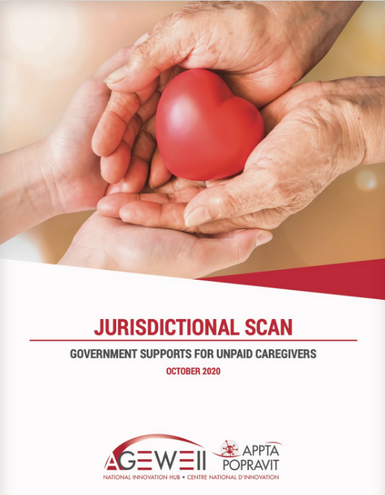Government Supports for Unpaid Caregivers: Jurisdictional Scan
In 2018, 25% of Canadians aged 15 or older reported that they had provided care to someone who had a long-term health condition, a physical or mental disability, or problems related to aging in the past year. The objective of this jurisdictional scan was to identify existing supports employed by governments to meet the physical, emotional, and financial needs of unpaid caregivers of older Canadians.
Author: AGE-WELL National Innovation Hub
Publication Date: October 2020
Description: A systematic mapping exercise was conducted in-person with government stakeholders at APPTA's Policy Stakeholder Meeting in October 2019 with representatives from the Yukon, British Columbia, Alberta, Saskatchewan, Ontario, New Brunswick, Nova Scotia, Prince Edward Island as well as Employment and Social Development Canada. The objective of this jurisdictional scan was to identify existing supports employed by governments to meet the physical, emotional, and financial needs of unpaid caregivers of older Canadians. Accordingly, the key inclusion criteria used throughout were: all legislation, policies, programs, or services included must be provided by or funded by a government or regional health authority, and all legislation, policies, programs, or services included must be available 6 for unpaid caregivers of adults aged 65 and over.
Access: Free
Keywords: caregiving, unpaid caregivers, government support



